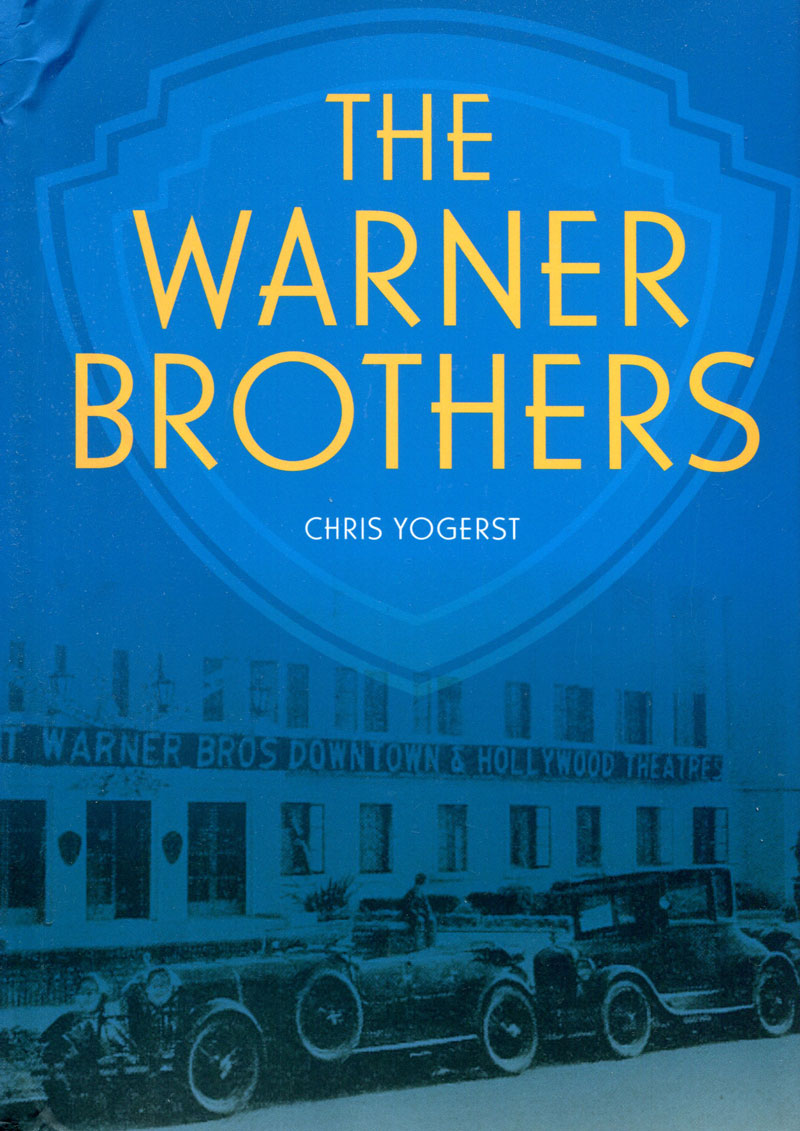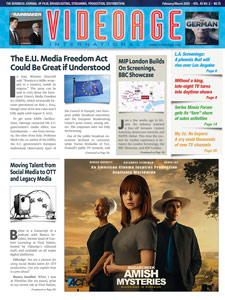Today, Warner Bros., one of the longest running entertainment companies in the U.S., might be best-known for producing classic and contemporary movies and TV series that stand as cultural landmarks of the 20th century. The company’s film catalog boasts classic titles such as Michael Curtiz’s 1942 romantic drama Casablanca and Victor Fleming’s 1939 historical romance Gone with the Wind from the Golden Age of Hollywood, and closer to the new millennium there are the fantastical Harry Potter and Batman franchises. The company’s animation and television divisions brought about iconic touchstones such as the entire Looney Tunes franchise, as well as exemplary TV shows such as Friends and The West Wing, among others.
Behind all these recognizable titles and remarkable stories associated with Warner Bros. is the story of four brothers who originally founded the company. There was Harry (1881-1958), the sharp businessman; Albert (1884-1967), the more reserved brother; Sam (1887-1927), the technology enthusiast; and Jack (1892-1978), the showman. Chris Yogerst’s The Warner Brothers (360 pgs., University Press of Kentucky, 2023, $34.95) presents a family history that delves into the lives of the brothers behind the studio.
Yogerst is a film and media historian, and he serves as associate professor of Communication in the Department of Arts and Humanities at the University of Wisconsin-Milwaukee. His writing has been published in several publications, including The Hollywood Reporter and the Washington Post, and his academic writing can be found in various journals dedicated to the history of film and popular culture. In addition to this latest book, he’s published two previous books, the first being From the Headlines to Hollywood: The Birth and Boom of Warner Bros., which focused more on the studio’s activities.
With The Warner Brothers, Yogerst shares details from the lives of these four brothers and how they shaped the film catalog at the studio that bears their name. The book is organized chronologically and gives a decade-by-decade play-by-play of their activities: their Polish-Jewish origins in Krasnosielc, Poland, where most of the brothers were born (except for the youngest, Jack, who was born in London, Ontario in Canada); the studio’s prolific output during the Depression; their fierce opposition to Fascism and support of the U.S. in World War II; the studio’s post-war affairs, including labor strikes and HUAC (House Un-American Activities Committee) testimonies; and how the studio fared in the transition to New Hollywood standards. The book also features an afterword, an ode to the studio, from Michael Uslan, one of the executive producers of Warner Bros.’ Batman franchise.
As Yogerst reminds his readers, here is a family whose struggles and achievements represent the American dream. “The story of the Warners is simultaneously an immigrant story, an American story, and a Hollywood story,” he writes. “The Warner brothers serve as a perfect cross section of substance, struggle, and success in Hollywood.”
A key claim of the book is that the brothers’ sensibility shaped the movies the studio put out, and this differentiated them from other contemporary studio moguls. “The brothers’ strong sense of civic responsibility was evident in their interviews, memos, public speeches, and films. They created and embodied their own brand of tough, gritty, bold Americanism.”
The story of four brothers in the entertainment industry does not lack in excitement. As one might expect, the book explores the family dynamics, including loyalty, rivalry, pride, betrayal, as well as tragedy in the form of Sam’s sudden death in 1927.
Yogerst has a special fondness for Harry, the eldest brother. The impetus for the project originally came out of the desire to write a biography of only Harry. Among the brothers, how Harry conducted himself singles him out as a model businessman. Yogerst writes that “Harry’s desire to combine good citizenship with good picture making is a high bar maintained by many of today’s best filmmakers.”
Yogerst’s The Warner Brothers is a key text for anyone interested in the lives of Hollywood’s most significant families. While the book offers a compelling narrative of the family, it also represents changes in the film and entertainment industry and shows how one studio responded to those economic and historical forces. Yogerst’s talent as a scholar and storyteller come into strong relief, and his enthusiasm for his subject makes the experience that much more pleasing. The brothers are the central focus of the book. No matter the tone and content of the studio’s output, the brothers’ values come through. “Warner Bros. produced its share of fun, escapist films,” he writes, “yet the movies that mirrored and engaged contemporary culture were those that best represented the brothers’ sense of social responsibility.”
(By Luis Polanco)
Audio Version (a DV Works service)












Leave A Comment